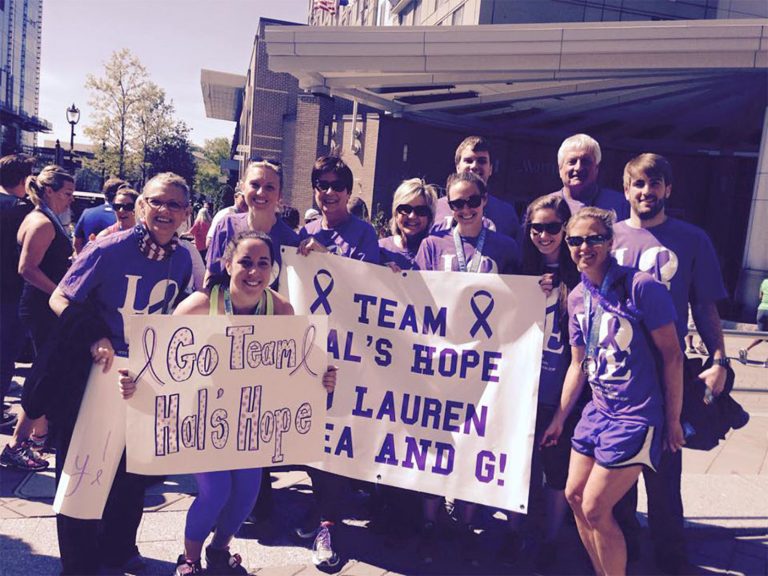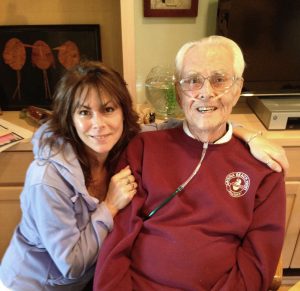Spiritual Well-being and Quality of Life for Patients Undergoing Chemotherapy
Pancreatic Cancer Blog – Commentary on Articles and AbstractsHere is where we take complex medical articles and break them down into language you and I
For over 22 years pancreatica.org has provided current, credible, and comprehensive information to those in need.
Cancer Patient’s Alliance is a 501(c)(3) non-profit organization. All donations are tax-deductible.
94% of all revenue goes towards our programs, with only 6% towards MANAGEMENT AND GENERAL EXPENSES.
Pancreatic cancer clinical trials are offered in many parts of the word. These studies seek to establish the validity of new and possibly improved treatment options.
Clinical trials are, ideally, a part of a system in which a series of scientifically-controlled experiments shepherd a plausible medical agent, combination of agents or procedure through a process whereby the efficacy of the medical agent or procedure is established or not. In the U.S. this process is overseen by the Food and Drug Administration (“FDA”).
Until more recently, when fast-tracking has become more possible, the process of taking a potential agent from the biochemical stage through clinical trials to final FDA approval could take as long as 15 years. This process begins long before human testing. Generally, moving the process into human testing is predicated on successful animal results. It is then that the three primary phases of human testing begins. A phase I clinical trial with human subjects seeks to answer questions about whether a drug-agent is reasonably safe for use by humans. It also may seek to learn something of the biokinetics of the drug. And finally tries to establish what the maximum tolerated dose of the drug is. These are the only real aims of a phase I clinical trial, although researchers will, of course, be looking for subtle indications that the drug may show future promise.
Some fraction of phase I clinical trials will move on to the phase II, which seeks to answer the question as to whether the drug has, in fact, an apparent effect against the cancer in question (in our case pancreatic cancer). Many potential drug therapies go no further than phase II – as they show no real effect against pancreatic cancer. Successful phase II candidates move on to phase III clinical trials which seek to determine how the new therapy compares to existing standard therapies. Phase III clinical trials are the core measure of a potential new drug. Phase III clinical trials are controlled experiments whereby patients with similar characteristics are assigned to receive either the existing therapy or to receive the new therapy. After a time, the results of the arms of test are then compared. If the new agent shows similar or improved results as compared to existing therapy, (after another step or two) it is often approved for release by the FDA. There is even a phase IV to this process which has to do with after-approval monitoring of the new drug for side-effects, etc. as it makes its way into wider use.
The decision to participate in a clinical trial for pancreatic cancer is a big one and should not be taken lightly. At its very heart a clinical trial is an experiment. Consequently, clinical trials contain inherent risk-both active risks and passive risks. An example of an active risk might be encountering an unexpected side-effect of the drug. An example of a passive risk might include the clinical trial protocol which may call for being off all standard medical treatment for 28 days (which is not uncommon) before beginning the clinical trial. For many diseases, this may not matter much. But with pancreatic cancer, this kind of a rule may matter a great deal.
On the other hand, the prognosis of certain stages of pancreatic cancer may not be great. Some of the emerging treatments may appear to hold more promise than existing ones. Approaching the possibility of participating in a clinical trial in a carefully reasoned, intelligent manner, depending on circumstance, may be a smart personal decision.
![]()
There are many issues to consider. Am I a good candidate for a clinical trial? What emerging drug or combination of drugs looks to be promising? Is the clinical trial really (realistically) more promising than existing therapy? Which phase of clinical trial am I comfortable participating in? Which institution is hosting the clinical trial? What is their reputation? What is their location relative to mine? Which physicians will be involved? What support do I have?
And there are other issues – many of them. Probably more than you can come up with on your own. This is when a strong bond with your personal physician can be of great service to you. Be sure to ask for aid and guidance from your physician (and other health professionals) in helping sort through these kinds of complicated decisions regarding pancreatic cancer clinical trials.
The following are descriptions of titles of abstracts of medical journal articles that may be interesting or useful to those who are interested in further information about this topic.These abstracts can be searched Here.
James Abbruzzese, MD Chief, Medical Oncology Duke University
Markus Büchler, MD Chairman, Surgery Heidelberg University, Germany
Ralph Hruban, MD Director, GI / Liver Pathology Johns Hopkins University
Eileen O’Reilly, MD Associate Director for Clinical Research – Memorial Sloan-Kettering Cancer Center
Margaret Tempero, MD Chief, Medical Oncology University of California at San Francisco
All DONATIONS are tax-deductible
Our Philosophy About Pancreatic Cancer
Pancreatic cancer is a serious disease. Taking an aggressive rational stance at the earliest possible time, supported by the best medical team, and treated in the most appropriate manner gives the best chance for survival.
We believe in strong patient-physician bonds, scientifically-based treatment, and that comfort can come from knowing that everything that reasonably can be done – is being done.
That the best approach is meeting cancer of the pancreas head-on and armed with the best available information.

Regular giving can be an opportunity to pay tribute in honour of a loved one. Your monthly gift will go directly to promoting awareness, increasing education, furthering pancreatic cancer research aimed at early diagnosis and, helping patients and families impacted by the effects of pancreatic cancer.
Simply select “Monthly” after choosing the amount you would like to give on the donation form.

Most of our fundraisers, supporters, and volunteers, have been in one way or another, personally effected by this disease. We want to acknowledge what hardships you may have gone through (or are currently facing) and sincerely thank you for visiting our site!
Join us in our effort to fight pancreatic cancer. Donations go directly to promoting awareness, increasing education, furthering pancreatic cancer research aimed at early diagnosis and, helping patients and families impacted by the effects of pancreatic cancer. All Donations are tax-deductible.

Making IMPACT for Pancreatic Cancer Together!

MONTHLY MEMORIAL GIFTS:
Support Pancreatic Cancer Research!
Regular giving can be an opportunity to pay tribute in honour of a loved one. Your monthly gift will go directly to promoting awareness, increasing education, furthering pancreatic cancer research aimed at early diagnosis and, helping patients and families impacted by the effects of pancreatic cancer.
Simply select “Monthly” after choosing the amount you would like to give.
Cancer Patients Alliance is a 501(c)(3) non-profit. Initiatives include, ToFightCancer.com and Pancreatica.org. All Donations are tax-deductible.
Pancreatic cancer is expected to become the 2nd leading cause of cancer-related death by the year 2020. There are many reasons why the outcome for pancreatic cancer patients is much bleaker than for most other cancer types. There are no reliable methods to detect the disease early, and there are very few effective treatment options.
| There remains a dire need for more research and an increase in focused funding for pancreatic cancer. Your Donation will go directly to promoting awareness, increasing education, and furthering pancreatic cancer research aimed at early diagnosis. |
This year an estimated 57,600 Americans will be diagnosed with pancreatic cancer. Approximately 47,050 Americans are expected to die from the disease. There are many reasons why the outcome for pancreatic cancer patients is bleaker than for most other cancer types. There are no reliable methods to detect the disease early, and there are very few effective treatment options. Which is why we are so focused on supporting research for early diagnosis.
Together with You our Mission is to promote awareness, increase education, and further pancreatic cancer research aimed at early diagnosis.


CREATE YOUR OWN FUNDRAISER FOR PANCREATIC CANCER !
Create your own fun, choose something you already love to support pancreatic cancer! Simply set up your participation page, include the details of your fundraiser on your page, and get the word out!
Shop to Support Pancreatic Cancer !
Amazon donates 0.5% of the price of your eligible AmazonSmile purchases to help fight pancreatic cancer!
AmazonSmile is the same Amazon you know. Same products, same prices, same service. Simply use our Link to start shopping!
Best of the Pancreatic Cancer Blog
Pancreatic Cancer Blog – Commentary on Articles and AbstractsHere is where we take complex medical articles and break them down into language you and I
Pancreatic Cancer Blog – Commentary on Articles and AbstractsHere is where we take complex medical articles and break them down into language you and I
Pancreatic Cancer Blog – Commentary on Articles and AbstractsHere is where we take complex medical articles and break them down into language you and I
This study is basically looking at whether aspirin can make a chemotherapy drug called gemcitabine work better for pancreatic cancer. You’ve probably heard of aspirin; it’s the stuff you take for a headache or fever.
© 2024 Pancreatica. All rights reserved | Privacy Policy
312 Fountain Avenue, Pacific Grove, California 93950 | Phone: (831) 658-0600 | Fax: (831) 658-0518 | participate@tofightcancer.com